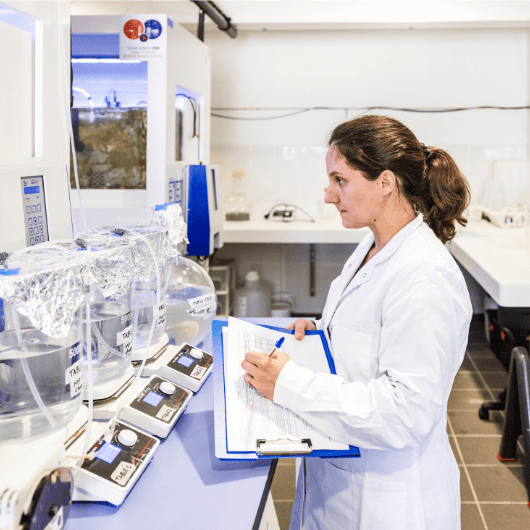Critical thinking
In the era of instant information, knowing how to distinguish truth from falsehood is more essential than ever. Critical thinking allows us to analyze data, question our beliefs, and make informed decisions. But how do we develop it? What obstacles, such as cognitive biases, can influence us? Let’s explore together the keys to rational and nuanced thinking.

What is critical thinking?
Critical thinking is the ability to analyze information in a reasoned and thoughtful way in order to make informed decisions. This process involves putting data into perspective, comparing it with other sources, and checking its reliability.
Key skills for critical thinking
An individual with strong critical thinking skills develops several fundamental abilities.
1. Assess the reliability of information
by identifying the source and comparing the facts
2. Argue and justify your opinions
with facts and logical reasoning
3. Search for and mobilise relevant resources
to support an idea or decision
Essential attitudes
Critical thinking relies not only on analytical skills, but also on attitudes that encourage an open and rational mindset:
- Changing one’s mind when evidence warrants it — a difficult but essential exercise.
- Demonstrating intellectual humility, by recognizing that our positions may be biased.
- Suspending judgment when faced with uncertain information, especially on social media where emotions often play a key role.
- Maintaining a rational relationship with the world, based on verifiable facts rather than polarized beliefs or opinions.
Why is critical thinking essential ?
Today, we are overwhelmed with information that is not always verified. Sharpening our critical thinking skills can help us reduce our exposure to false information and manipulation.
By developing a critical mindset, we protect ourselves against disinformation. In doing so, we avoid spreading false information, which helps limit our society’s exposure to manipulation.
Demander à ChatGPT
Cognitive biases: when our brain plays tricks on us
Cognitive biases are mental shortcuts that distort our perception of reality. More than 200 cognitive biases have been identified. Becoming aware of these biases helps us better understand the world and adopt a more critical approach to the information we receive.
Examples of bias
Correlation or causation: a crucial difference
Two events occurring at the same time are not necessarily linked by a cause-and-effect relationship.
Correlation: two events happen simultaneously without a direct causal link.
Causation: one event is directly responsible for another.
Not making this distinction can lead to incorrect conclusions and be exploited to manipulate opinion.
How to develop critical thinking?
Cut through the nonsense with Occam’s razor
The simplest and most logical solution is often the most likely.
Request evidence
Anyone who puts forward information must provide evidence of its veracity and its sources.
Check the sources
Cross-check information and identify its source.
Take a step back
Avoid reacting impulsively, especially on controversial topics.
Key points
Developing critical thinking means learning to navigate a world full of abundant and sometimes misleading information. By adopting a thoughtful approach and relying on facts, we can better understand our environment and make wiser decisions.